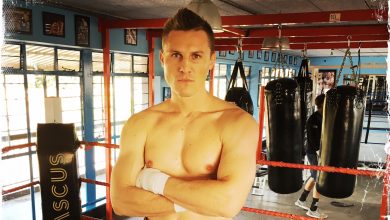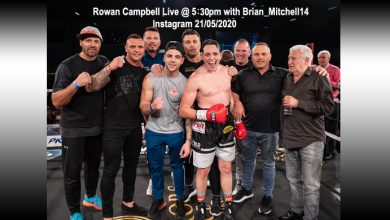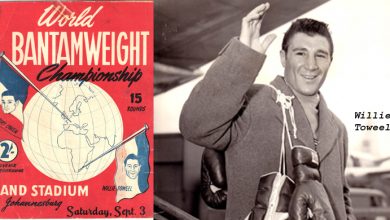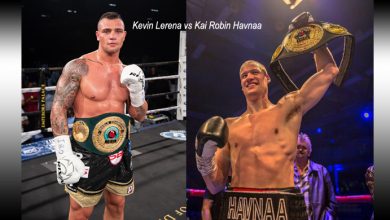Cruiserweights from the African continent: A proud history.
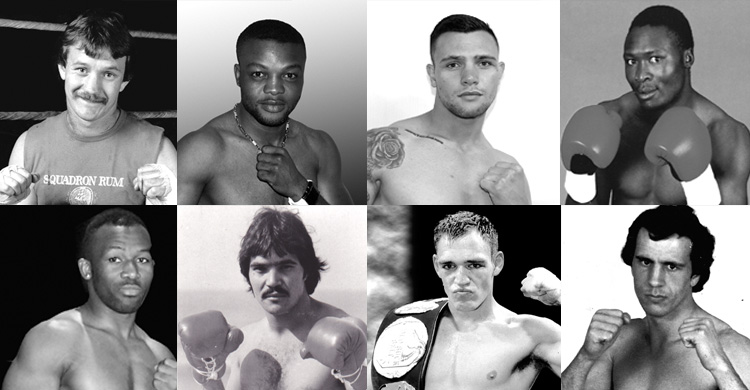
Africa is making some noise in boxing’s second heaviest division.
There is Ilunga “Junior” Makabu who recently captured the WBC world title by outpointing unbeaten Pole, Michal Cieslak, in his native Kinshasa, in the Democratic Republic of the Congo. The hard-hitting southpaw has 24 knockouts included among his 27 wins against only two defeats and is an all action fighter who typically takes a few to land a few. He has fought some memorable wars against the likes of Dmitry Kudryashov and Aleksei Papin and never leaves the fans wanting.
Then there is the IBO world champion, Kevin ‘Two Guns” Lerena, who has made six defenses of the belt he captured in 2017 by outpointing Youri Kalenga. Another southpaw, the 28-year-old South African has done remarkably well for a fighter with no amateur background, running his record to 25-1 under the watchful eye of trainer, Peter Smith. An athletic boxer with fast feet and hands, Lerena has developed an aggressive streak since returning from shoulder surgery in 2019, stopping three of his last four opponents. Tentatively scheduled to face Kai Robin Havnaa, the son of former WBO cruiserweight champion, Magne Havnaa, as soon as COVID-19 restrictions are lifted, he is chomping at the bit for a mega fight against one of the other champions of the division.
Staying with southpaws, another South African, Thabiso “The Rock” Mchunu, is suddenly back in world contention after giving himself an early Christmas present at the end of last year, journeying to Russia to outpoint former long reigning WBA/IBF cruiserweight champion, Denis Lebedev, for the WBC silver title. Mchunu had an excellent run in the US during 2013 and 2014, when he scored wins over former heavyweight contender and title challenger, Eddie Chambers, a well as Olunrewaju Durodola and Garrett Wilson. He was a top ranked contender before getting knocked out in the eleventh round against Makabu after being ahead on points. He then lost his way, losing in a challenge for the WBO world title to the brilliant Aleksandr Usyk and dropping decisions to Constantin Bejenaru and Tommy Oosthuizen before rebounding with three straight wins, avenging the Oosthuizen loss along the way. He is once again at the precipice of challenging for a world title.
Bringing up the rear, there are also top prospects like Akani Phuzi, Keaton Gomes, Chris Thompson and Lebo Mashitoa who have agreed in principle to a four-man tournament once professional sports gets the go ahead in some format or other.
The present is looking good, but the cruiserweights have an interesting history on the continent. The division was formed in 1979 by the WBC with the weight limit set at 190 pounds (86.2 kg), Marvin Camel becoming that organization’s first champion.
The WBA followed suit in 1982, naming it instead the “junior heavyweight” division at the time. South Africa’s Robbie Williams and Puerto Rican, Ossie Ocasio, contested their vacant world title at the Rand Stadium.
The pair were a perfect example of why the division was created. Ocasio had lost a challenge against Larry Holmes, getting stopped in seven rounds. He held then undefeated future WBA heavyweight campion, Michael Dokes to a draw, but lost the rematch in the first round. Standing under six feet, Ocasio was a clever boxer who was just too small for the big guys. Williams was a little taller, but although he was coming off two wins over tail spinning heavyweights, Kallie Knoetze and Jimmy Abbott (Williams fought Abbott no less than five times, going 2-2-1), he rarely tipped 200 pounds on the scale. There was clearly a need to accommodate the smaller big men.
Ocasio won a split decision to become the first WBA world champion in the division.
Williams was knocked out in the first round by heavyweight, Bennie Knoetze, in his next fight but did manage to capture the vacant South African heavyweight title two fights later by stopping Ron Ellis in five rounds in 1983. Williams decided to go out a high and called it a day.
Ocasio went on to make three successful title defenses before returning to South Africa in 1984 to defend his title against unbeaten South African, Piet Crous, at the Sun City Superbowl in the main supporting bout to the WBA world heavyweight title fight between Gerrie Coetzee and Greg Page. Ocasio was a spoiler and the fight was marred by a lot of clinching from the champion’s side but the South African was determined and won a unanimous decision over fifteen rounds. For a brief moment, with Gerrie still in the dressing room, South Africa had two world champions!
Ocasio fought on, beating Dwight Muhammad Quawi and getting stopped in eleven rounds by Evander Holyfield in a challenge for the WBA and IBF titles before returning to South Africa as a heavyweight in 1988 to split two fights with Pierre Coetzer. Thereafter he became a heavyweight gatekeeper, testing big names such as Ray mercer and Lennox Lewis on their way up.
Crous made one successful defense, getting off the canvass to stop Randy Stephens in a wild third round before facing former lightheavyweight champion, Dwight Muhammad Quawi, in his next defense. Crous started well but Quawi gradually overwhelmed him as the fight went on. He was still ahead on one card with the fight even on the other two cards entering the eleventh round, when the American stepped on the gas. Quawi sent Crous down twice to take his title by knockout victory.
Piet Crous won three more fights before retiring in 1987 when underdog, Freddie Rafferty, knocked him out in seven rounds.
Ironically, it was not until 1988, when the South African Boxing Board of Control finally recognized the weight division locally, Rafferty becoming the first South African champion by stopping Gideon Hlongwa in three rounds. A hard puncher, Rafferty would have three reigns as national champion but never quite got over the hump in international competition.
The next South African to make waves was Siza Makhathini. Starting his career as a heavyweight, dropping down to cruiserweight proved to be a good decision and he developed into an all action pressure fighter, winning the “Prospect of the Year” award at the King Korn South African Boxing Awards. He got off to a terrific start when he challenged IBF world champion, Glenn McCrory, in England in 1989. He banged the champion from pillar to post for the first few rounds and looked to be on his way to a stoppage victory until McCrory launched an all-out counter assault in the sixth round. From then on, Makhathini gradually lost control of the fight until McCrory knocked him out in the eleventh.
Makhathini rebounded in his next fight, returning to England, and getting off the canvass in a near disastrous first round to drop Dave Garside twice, winning a unanimous twelve round decision to capture the IBF intercontinental belt. Makhathini was the first South African to capture one of the various sanctioning body “international” type second tier titles so commonplace today.
He got a second shot at the IBF world title in 1990 against Jeff Lampkin. He was competitive but a short left hook to the body from Lampkin ended his world title dreams in the eighth round. It was downhill from there and he never won again, holding future heavyweight contender, Francois Botha to a split decision before retiring in 1991 after getting knocked out by Russian heavyweight, Yuri Vaulin.
Although he had his entire professional career in his adopted France, Congolese born Anaclet Wamba, was the next African to capture a cruiserweight world title, stopping Massimiliano Duran in eleven rounds to capture the WBC title in his second try (he was disqualified in his first challenge of Duran). He made seven successful title defenses before retiring as undefeated champion in 1994.
Jacob Mofokeng was the next South African to make waves, stopping undefeated Ryan Poletti in seven rounds in the US to capture the vacant WBU cruiserweight title in a crowd-pleasing brawl. He lost it in his first defense via majority decision to Rob Norton in England but rebounded well as a heavyweight, capturing the national title before health problems tragically ended his career and eventually, his life. Who knows how far he could have gone?
Sebastiaan Rothman, an exciting, super fit fighter who, like Makhathini before him, was trained by Harold Volbrecht, took over where Mofokeng left off, stopping Norton in eight rounds for the WBU title in 1999. He made six successful defenses of the belt before giving it up in 2002 and then stopped Anthony Bigeni in five rounds for the vacant IBO title.
After a single defense against Jorge Castro, he lost it in an epic war against former WBO champion, Carl Thompson. With heavyweights getting bigger and bigger, it was also around this time that the cruiserweight limit was lifted to 200 pounds (90.7 kg) and it would be the first time that Rothman defended his title at the higher weight.
Ahead in the fight, he had Thompson hurt and on the verge of a stoppage when a single right hand from the Brit knocked him cold in a dramatic turnaround.
Rothman dropped a close majority decision to future two-time IBF world champion, Steve Cunningham, in his next fight before rebounding with a win over South African heavyweight champion, Anton Nel.
He finally got a shot at a major world title in 2005 when he challenged the IBF champion, O’ Neill Bell. Rothman boxed well behind his jab and gave the champion nightmares, but Bell was a crippling puncher and saved his title by knocking out the South African in the eleventh round.
How long will Ilunga Makabu reign? Will there ever be a Makabu-Mchunu rematch? What about a Makabu-Lerena super fight? How will Kevin Lerena do against the other champions of the division?
Hopefully, time will tell but one thing is for sure: The African continent has produced some fine cruiserweights!

